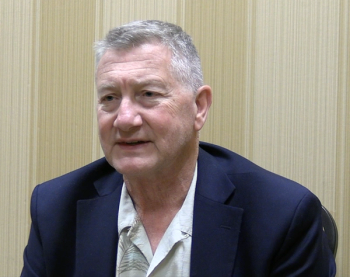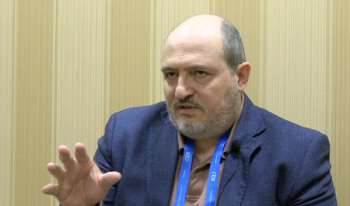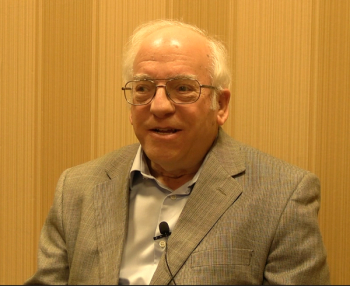
Pittsburgh Spectroscopy Award Presented to Yukihiro Ozaki at Pittcon 2019
Yukihiro Ozaki, a former Professor in the Department of Chemistry at the School of Science and Technology at Kwansei Gakuin University in Japan, was presented with the Pittsburgh Spectroscopy Award during a symposium on March 20 at Pittcon 2019 in Philadelphia, Pennsylvania.
Yukihiro Ozaki, a former Professor in the Department of Chemistry at the School of Science and Technology at Kwansei Gakuin University in Japan, was presented with the Pittsburgh Spectroscopy Award during a symposium on March 20 at Pittcon 2019 in Philadelphia, Pennsylvania. He has been active in molecular spectroscopy for the last four decades.
Ozaki received his BS (1973), MS (1975), and PhD (1978) degree from Osaka University. He has published more than 1000 manuscripts and publications, and his papers have been cited more than 26,000 times.
Ozaki’s research has focused on basic studies and applications of Raman, infrared (IR), near-infrared (NIR), far-ultraviolet (FUV), and terahertz (THz) spectroscopy.
After the award presentation, Ozaki gave a talk titled “Frontiers of ATR-Far-Ultraviolet Spectroscopy.” His talk described the development of an ATR-FUV spectrometer for the wavelength range from 140 to 300 nm. The technique enables spectral measurements similar to those of transmittance spectra with a very short optical path length. The development of this spectrometer has enabled Ozaki and his team to measure the spectra of liquid and solid samples in the complete FUV region without facing problems such as peak saturation.
Among the awards won by Ozaki are the Tomas Hirschfeld Award (1998), the Japan Spectroscopy Society Award (2002), the Hyogo Prefecture Science Award (2003), the Science and Technology Award of Ministry of Education, Culture, Sports, Science and Technology (2005), the Gerald S. Birth Award (2006), the Japan Society for Analytical Chemistry Award (2008), the Fellow Award from the Society for Applied Spectroscopy (2010), the JSAC Advanced Analytical Technique Award (JAIMA Instrument Development Award) (2011), the Desari Lecture Award from the George R. Harrison Spectroscopy Laboratory at MIT (2011), the Bomem-Michelson Award (2014), the PLUS RATIO VIS Silver Medal om the occasion of the 650th Anniversary of Jagiellonian University in Poland (2014), and a Fellow Award from the Royal Society of Chemistry (2015).
Newsletter
Get essential updates on the latest spectroscopy technologies, regulatory standards, and best practices—subscribe today to Spectroscopy.




